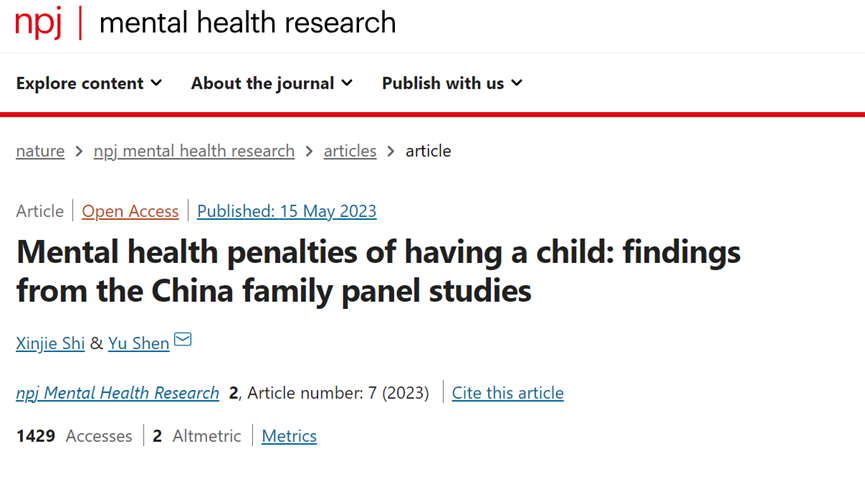
Recently, the paper “Mental health penalties of having a child: findings from the China family panel studies” co-authored by Xinjie Shi, the double-employed scholar from the Common Prosperity Research Center, Innovation Center of Yangtze River Delta, and Dr. Yu Shen from Nanjing University of Finance & Economics, was accepted and released online by npj Mental Health Research, one of the Nature-branded journals. This study is one of the research findings on urban-rural opportunity equity. It has been
This study is a supplement to available articles on childbearing penalty, most of which has focused on the impact of labor market outcomes but paid little attention to impact of gender differences on men's and women's mental health. This study found that childbearing penalty in terms of mental health brought by childbearing is also substantial, which is likely associated with the childbearing penalty in labor market performance. This is marked by fewer opportunities and lower income and physical health for women. The study’s findings suggest that to achieve the United Nation’s Sustainable Development Goals 3 and 5, more attention should be directed to women’s mental health. While the macro-level association between demographic transition and economic growth has been studied in detail, few studies have focused on the micro-level implications for women. When countries that face the problem of the so-called “low-fertility trap” attempt to adopt multiple tools to stimulate the birth rate for economic growth, they must simultaneously consider the implicit burden on women. This requires not only efforts from governments to enterprises, individuals and civil society, but also a mixed tool of the supportive healthcare system and labor market policies (e.g., eliminating gender discrimination).


